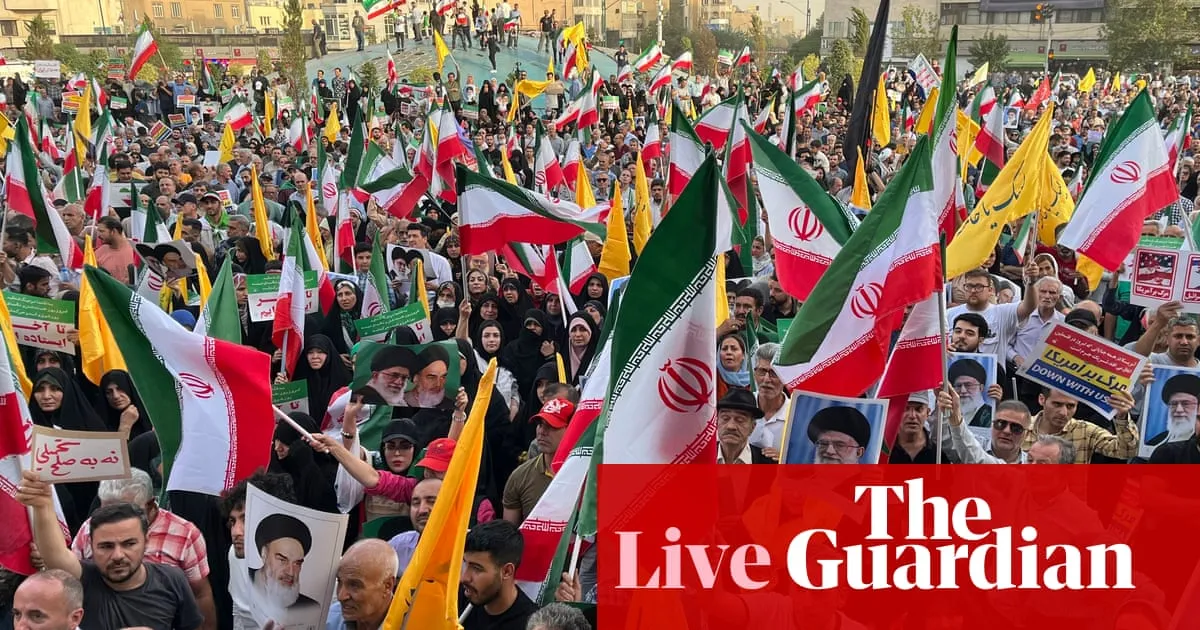
The fragile ceasefire between Israel and Iran appears to be holding, despite ongoing tensions and accusations from both sides. Former President Donald Trump has expressed frustration over violations of the truce he brokered, with Israel accusing Iran of launching missiles into its airspace just as the ceasefire was set to take effect. In response, the Iranian military denied these allegations, stating that they had not fired on Israel.
In a preliminary classified report from the Defense Intelligence Agency, it was revealed that Trump's military strikes on Iranian nuclear facilities did not achieve their intended goal of complete destruction. Instead, the assessment indicates that two key sites likely remain intact, and the Iranian nuclear program has only been set back by a few months. The report highlights that crucial components, including centrifuges, are capable of being restarted within a matter of months.
This contradicts Trump's assertions that Iran’s nuclear program was “completely and fully obliterated.” The White House has labeled the assessment as “flat-out wrong,” further complicating the narrative surrounding the military actions taken against Iran.
Israeli Prime Minister Benjamin Netanyahu declared that Israel would launch further strikes if Iran attempts to rebuild its nuclear project. He characterized the recent conflict as a “historic victory” for Israel, claiming that the nation had successfully mitigated the threat of nuclear annihilation during 12 days of warfare. Netanyahu emphasized that Israel would continue its campaign against the Iranian influence, while also highlighting the urgency of defeating Hamas and securing the release of hostages in Gaza.
Netanyahu noted, “We have removed two immediate existential threats to us: the threat of nuclear annihilation and the threat of annihilation by 20,000 ballistic missiles.” His remarks come amid Trump's criticism of Israel's military actions, which he claimed violated the ceasefire agreement.
At the NATO summit in the Netherlands, discussions surrounding the Israel-Iran conflict are expected to dominate conversations among world leaders. British Prime Minister Keir Starmer has called for a maintained pause in hostilities, emphasizing that diplomatic solutions are essential for stability in the Middle East. He remarked that the ceasefire should be preserved to allow for negotiations to take place.
Iran’s ambassador to the United Nations, Amir Saeid Iravani, stated that Tehran is “closer to diplomacy than ever” and stressed the importance of dialogue in resolving the crisis surrounding Iran’s nuclear program. This sentiment was echoed by Trump's special envoy, Steve Witkoff, who indicated that promising discussions are underway between the US and Iran regarding a potential peace agreement.
Amid these developments, the Trump administration authorized a $30 million grant to the Gaza Humanitarian Foundation, which has faced criticism for its close ties to private security contractors and alleged politicization of aid distribution in Gaza. Insiders have reported that the approval process for this grant was expedited, raising concerns about oversight and accountability in humanitarian efforts.
The ongoing conflict and negotiations between Israel and Iran remain highly complex and fraught with challenges. As both nations navigate the fragile ceasefire, international diplomatic efforts are crucial in fostering a sustainable resolution. The evolving situation requires close monitoring as leaders from around the world engage in discussions aimed at achieving long-term peace in the region.